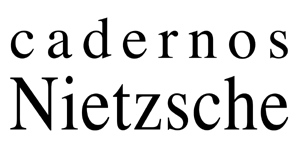Abstract: This article has the purpose to highlight how does the “cartesian revolution” reveals itself to Nietzsche as a thoughtless answer to unconscious devices. Thus, the alleged radicality in the foundation of his philosophy and its unfolding would have happened by the intrusion of the following unconscious agents: the yearning of a physio-psychological accommodation behind the cogito; the unconscious morality ranking the intellect as higher than the sensible and the passional spheres, as well as implying a well-ordered world, obedient to the clear and distincts ideas; a third factor of uncouscious agency would be the habits of grammar, whereby he proceeds just in inverting the primacy between “I” and “think”, providing thought and its scientific deeds with a “tourniquet action” exerted on the ancient notion of soul. This framework continued to worsen until the second half of nineteenth century, when Nietzsche discovered philosophy.
Keywords
Descartes; psychology; physiology; moral; drives; soul
